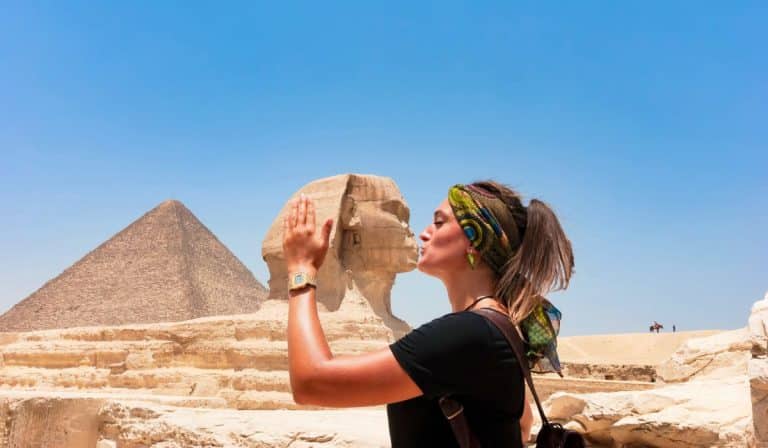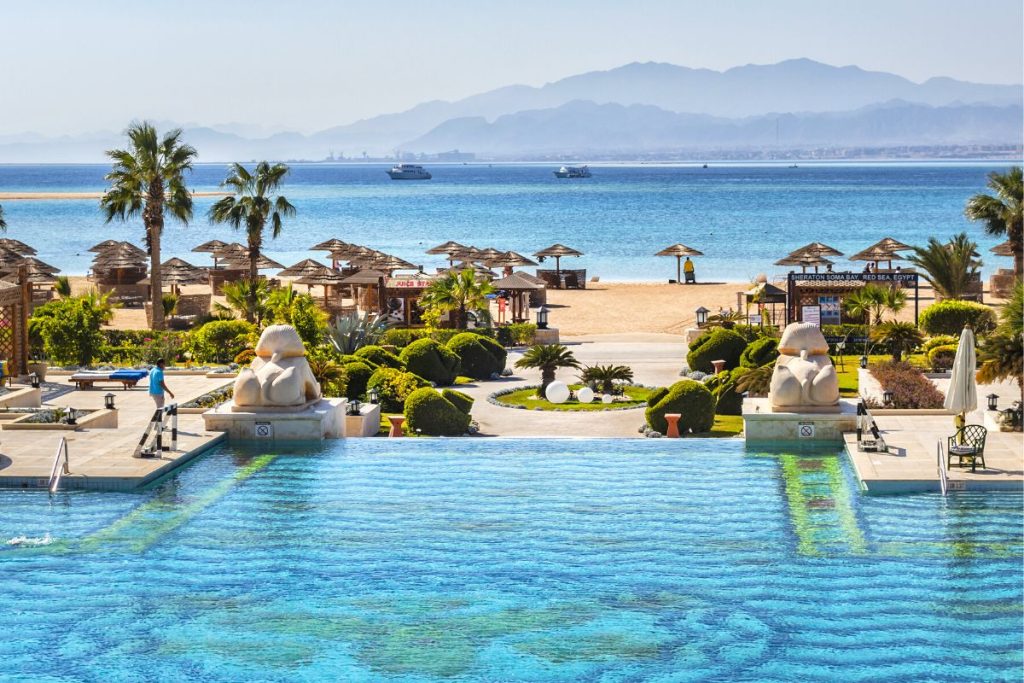Digital nomads are quickly adding spending time among the pyramids to their ever-growing lists of exciting and affordable places to spend a few weeks or months.
Much like parts of Indonesia, Vietnam, and Sri Lanka, many Egyptian cities are currently experiencing economic challenges that are contributing to significantly lower costs of living than what long-term travelers might expect in many other destinations.
Egypt’s vast array of resorts, particularly across its coastal region, is rapidly gaining traction as a lesser-known option for enjoying an upscale travel experience without breaking the bank. This is particularly true for visitors from Europe, North America, and other areas with a stronger currency that offers significantly higher purchasing power than the value that locals might expect from covering the same costs in Egyptian pounds.
Social media continues to play a major role in making it possible for digital nomads to meet new people, stay connected with friends and family members, and share their experiences from nearly anywhere in the world. While Instagram, TikTok, and YouTube are quickly earning their place as the platforms of choice for many digital nomads when it comes to sharing their photos and videos, Facebook and other older platforms are still tried-and-true options for joining online communities that make it possible to connect with other long-term travelers in Dahab or almost anywhere else. For instance, the Dahab Digital Nomads FB group has 7.3K members and the Digital Nomads in Egypt FB group has 3.4K members.
While the decline in the value of the Egyptian pound is good news for digital nomads who are looking to stretch their limited budgets as far as possible, it is important to keep in mind that it also causes challenges for locals.
A struggling local economy may not necessarily be a reason to avoid spending a few weeks or months in Dahab, Luxor, or another Egyptian city, but it does mean that being especially intentional about supporting local businesses and avoiding overconsuming resources that locals need is an important step in traveling responsibly.
Egypt remains a safe destination despite conflict in the region
Despite ongoing conflicts in various parts of the Middle East, Egypt continues to be recognized as a safe destination for visitors. The country’s rich tapestry of cultural heritage, encompassing millennia-old monuments like the Pyramids of Giza, the Great Sphinx, and the treasures of the Valley of the Kings in Luxor, remains accessible and inviting to visitors from around the globe. The Egyptian government has implemented stringent security measures to ensure the safety of its tourists, including enhanced security protocols at major tourist sites, airports, and in cities. These efforts have been effective in maintaining a calm and secure environment for travelers, allowing them to experience the wonders of ancient civilization without undue concern for their safety.



